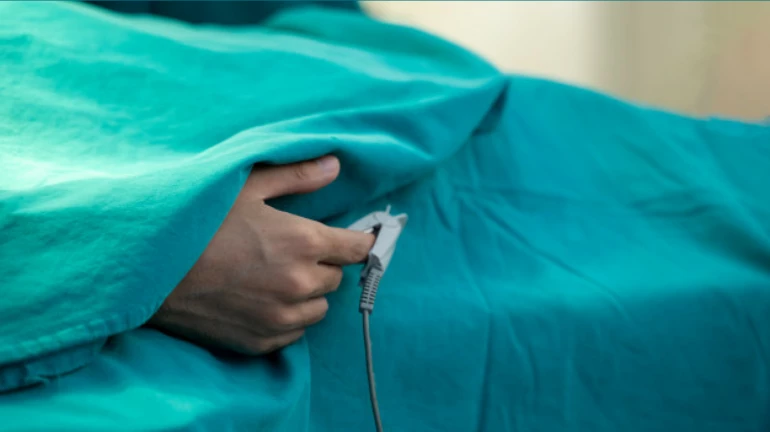
Mumbai's Lilavati Hospital performed lifesaving Mitraclip procedure on a 77-year-old patient Gopal (Name Changed) who was suffering from sleeplessness night for almost 7 years due to the debilitating effects of severe Mitral Regurgitation, where abnormal leakage of blood flow backward through the mitral valve.
This condition caused risks of heart failure-related complications. This minimally invasive procedure also reversed kidney failure giving him a new lease of life.
Dr. Ravinder Singh Rao, an Interventional Cardiologist, every night, Gopal experiences difficulty breathing and has to sit up in bed after a few hours. He spends hours sitting upright or even sleeping in a chair. This routine has continued for 7 years, during which he has sought advice from multiple doctors. They have determined that when Gopal lies down, the leakage in his mitral valve worsens and his lungs fill with fluid, necessitating him to sit up. To alleviate his night-time discomfort, his medication dosage was increased. However, this resulted in elevated creatinine levels and put him at high risk for kidney failure. Despite being recommended for open heart surgery again, Gopal is considered too high risk due to his previous surgery.
The prevalence of mitral regurgitation is on the rise due to its consistent under-diagnosis and inadequate treatment worldwide. This valvular abnormality affects over 2% of the global population and becomes more prevalent as individuals age. MR occurs when blood flows backward from the left ventricle into the left atrium through the mitral valve.
According to Dr. Ravinder Singh Rao, an Interventional Cardiologist at Lilavati hospital, Patient Gopal underwent a 3-D TEE evaluation to determine the severity of his valve dysfunction. The evaluation revealed significant leakage in his mitral valve. Severe mitral valve regurgitation requires the heart to exert more effort in pumping sufficient blood throughout the body, resulting in enlargement of the left ventricle. If left untreated, this can lead to weakened heart muscles and potentially heart failure. Therefore, it was determined that a transcatheter mitral valve repair using the Mitraclip procedure was necessary.
“The catheter was inserted through the groin vessel and navigated from the right side of the heart to the left side. A Clip was then inserted and placed at the site of leakage, effectively treating it. The procedure successfully reduced pressure in the lungs, allowing the patient to be taken off the ventilator on the cath lab table. After spending one night in ICU, he was transferred to a regular room and discharged on day 3. On the night of the procedure, the patient slept continuously, which his son noted as a significant event after 7 years of sleep deprivation,” Added Dr Rao.
The COAPT trial conducted in the United States has proven the effectiveness of Mitraclip therapy in preventing negative outcomes and improving long-term prognosis. This treatment has been shown to reduce mortality rates, hospitalizations, and the necessity for heart transplants in patients suffering from mitral regurgitation and heart failure. The implementation of Mitraclip at Lilavati Hospital was a collaborative effort by Dr. Ravinder Singh Rao, Dr. Anand Rao, Dr. Vidya Surtkal, and Dr. Namrata Kothari to ensure safety and success.
According to Lt Gen (Dr) V Ravishankar, Consultant Cardiothoracic Surgeon and COO of Lilavati Hospital, Bandra, “The minimally invasive procedure of Transcatheter Mitral Valve Repair (TMVR) is highly recommended for patients who are deemed high risk for conventional open-heart surgery. This advanced technique allows for a quicker recovery time, shorter hospital stays, and fewer complications compared to traditional surgery. Additionally, patients who undergo the Mitra Clip procedure experience immediate symptom improvement and report less post-procedure pain.”
The exceptional cardiac care provided by Lilavati Hospital is exemplified by their success in transcatheter valve replacement, showcasing their dedication to pushing the boundaries of medical innovation. Through the implementation of life-saving treatments such as Mitraclip, the hospital consistently transforms patients' lives and solidifies its reputation as a premier institution in cardiac care.





